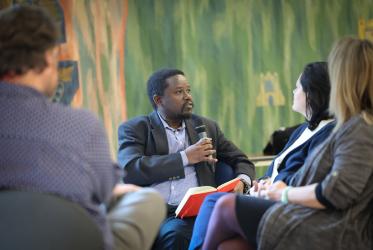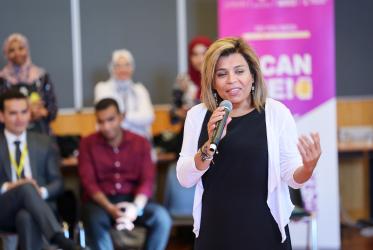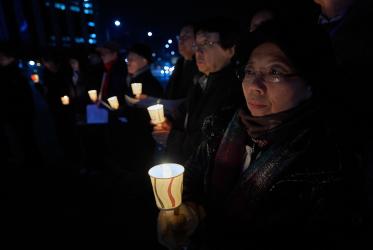Displaying 1 - 20 of 42
Voice of churches vital during UN women’s rights talks
28 March 2024
At peace conference, WCC focuses on overcoming racism
26 October 2023
ACT Alliance general secretary: “equity is not negotiable”
26 September 2023

















